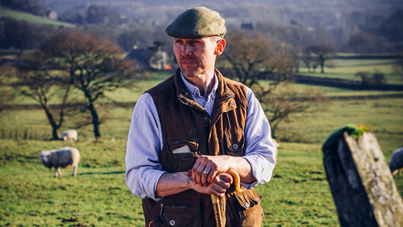Author
Dealing with family farms following death can be a complex task. The recent case of a South Walian farming family, Williams v Williams and Others [2022] was no exception. In this case the High Court had to address questions concerning the existence of a partnership, whether the farms were partnership assets and whether promises were made as to who should inherit. Like many small family farms, three out of four siblings worked on the farm, but it was the Claimant, Dorian Williams, who brought the case, claiming on the grounds of proprietary estoppel that he had been promised the farms.
The facts
Following the death of their parents, Catherine and Lloyd, a dispute arose between Dorian and two of his siblings, Gerwyn and Susan, over the beneficial ownership of two family farms, Cefn Coed Farm and Crythan Farm.
Both farms had been farmed by the family for many years. In 1985, a partnership was formally set up and recorded in a written partnership agreement made between Lloyd, Catherine, and Dorian. Crythan Farm was purchased in 1985 in the names of Lloyd and Catherine only, and Cefn Coed Farm was purchased in the names of Lloyd, Catherine and Dorian in 1986.
Lloyd and Catherine gifted Crythan Farm to Susan in 1991, Catherine died in 2013, leaving her estate to Lloyd.
When Lloyd died, his will gave Dorian the option to take certain actions, such as taking Gerwyn into partnership with him, but since Dorian chose not to do any of these things within the six month time period specified in the will, the default provisions stated that Lloyd’s share in both farm houses would vest in Gerwyn and Susan in equal shares, and his interests in the remainder of Cefn Coed Farm and the Partnership would pass to Gerwyn.
Proceedings
Dorian was unhappy with the terms of Lloyd’s will, and brought a claim that:
- both farms were assets of the Partnership that had been set up in 1985 between Dorian, Catherine and Lloyd, and that upon Lloyd and Catherine’s deaths both farms and the Partnership enured to Dorian as the surviving partner; and
- in the alternative, a proprietary estoppel had arisen as a result of promises made by Catherine and Lloyd to Dorian, that Cefn Coed Farm and the Partnership would be his solely after they died.
Gerwyn and Susan, represented by Michelmores LLP, defended Dorian’s claims, and Gerwyn brought his own counterclaim for proprietary estoppel on the basis that he had also been promised a share of Cefn Coed Farm and the Partnership by his parents, and had acted to his detriment as a consequence.
After a four-day trial before His Honour Judge Jarman, the Court found that Dorian had failed to make out his proprietary estoppel claim, and also, that neither farm was a partnership asset.
Proprietary Estoppel claim
In relation to the proprietary estoppel claim, the Court viewed Lloyd and Catherine’s wills as strong evidence that they had wanted to be fair to Gerwyn, Susan and Dorian (rather than wanting Dorian to inherit the entirety of their assets as he claimed). This appeared to have been the case for a very long time; in two previous wills made by Lloyd and Catherine in 1988, they had made provision for Susan, Gerwyn and Dorian (who were all working on the farms at the time).At this time, Gerwyn had stopped carrying out work he had been doing for a third party and was spending more time on the farms. It is notable that Lloyd and Catherine made no provision in their wills for their fourth child, because she had not worked on the farms like her other siblings.
The Court accepted that a promise had likely been made to Dorian that he would inherit the entirety of Cefn Coed Farm, if Gerwyn carried on working for the third party on the motorways. However, the judge found that “that was not an assurance that this was what would happen come what may“. Shortly after that promise was made, Gerwyn came back to the farms, and although he pursued other business activities from time to time, the Judge found that Gerwyn had carried out substantial work for the partnership business and had contributed a vast amount of money to it.
The Court, however, did not accept Dorian’s evidence that the promises had continued to be made to him over the years in the same terms. As a result, the Judge concluded that Dorian could not reasonably have relied on that indication, throughout the subsequent years, to believe that he would inherit the farm. Moreover, in 2003 Dorian had been told expressly by his father that a share would be left to Gerwyn.
Were the farms partnership assets?
The Judge cited in detail the established legal principles that apply when considering whether property comprises assets of a partnership. Whilst both farms were included within the Partnership accounts, the Judge reiterated that the inclusion of an asset within the partnership accounts is an indication that it is a partnership asset but is not conclusive. He then conducted a careful balancing exercise between the factors indicating that the farms were partnership assets and those indicating that they were not.
In relation to Crythan Farm, the factors suggesting that it was a partnership asset included that some funds from the Partnership account had been used towards the purchase price, and the proceeds of a sale of a field at Crythan Farm had been dealt with as partnership property.
However, the Judge felt that they were outweighed “by some margin” by other factors; namely, that the vast majority of the purchase price was provided by Lloyd and Catherine (with contributions from three of their children), that it was conveyed to Lloyd and Catherine as beneficial joint tenants, and that Dorian’s own case was that he was not aware that Crythan Farm was a partnership asset.
The Judge felt that the inclusion of Crythan Farm in the accounts was not a strong indication that it was a partnership asset, particularly because the accountant had given evidence in the case that Crythan Farm had been included within the Partnership accounts to assist with future borrowing by the Partnership if needed, and that it was included within the Partnership accounts without instructions.
As to Cefn Coed Farm, whilst there were factors indicating that it was a partnership asset e.g. that the mortgage for that farm was paid out of the Partnership account, the Judge felt that other factors weighed more strongly in favour of it not being a partnership asset. These were that approximately half of the total purchase monies for Cefn Coed Farm were paid by Lloyd and Catherine from their personal funds, and that it was evident from their wills that they considered that they had the ability to deal with their shares in Cefn Coed Farm as they wished.
Conclusion
This was a complex dispute, and a further reminder of the importance of tackling succession and partnership issues head on during the life of all parties concerned. Failure to address these issues promptly can result in lengthy, complex and expensive litigation further down the line.
Print article

